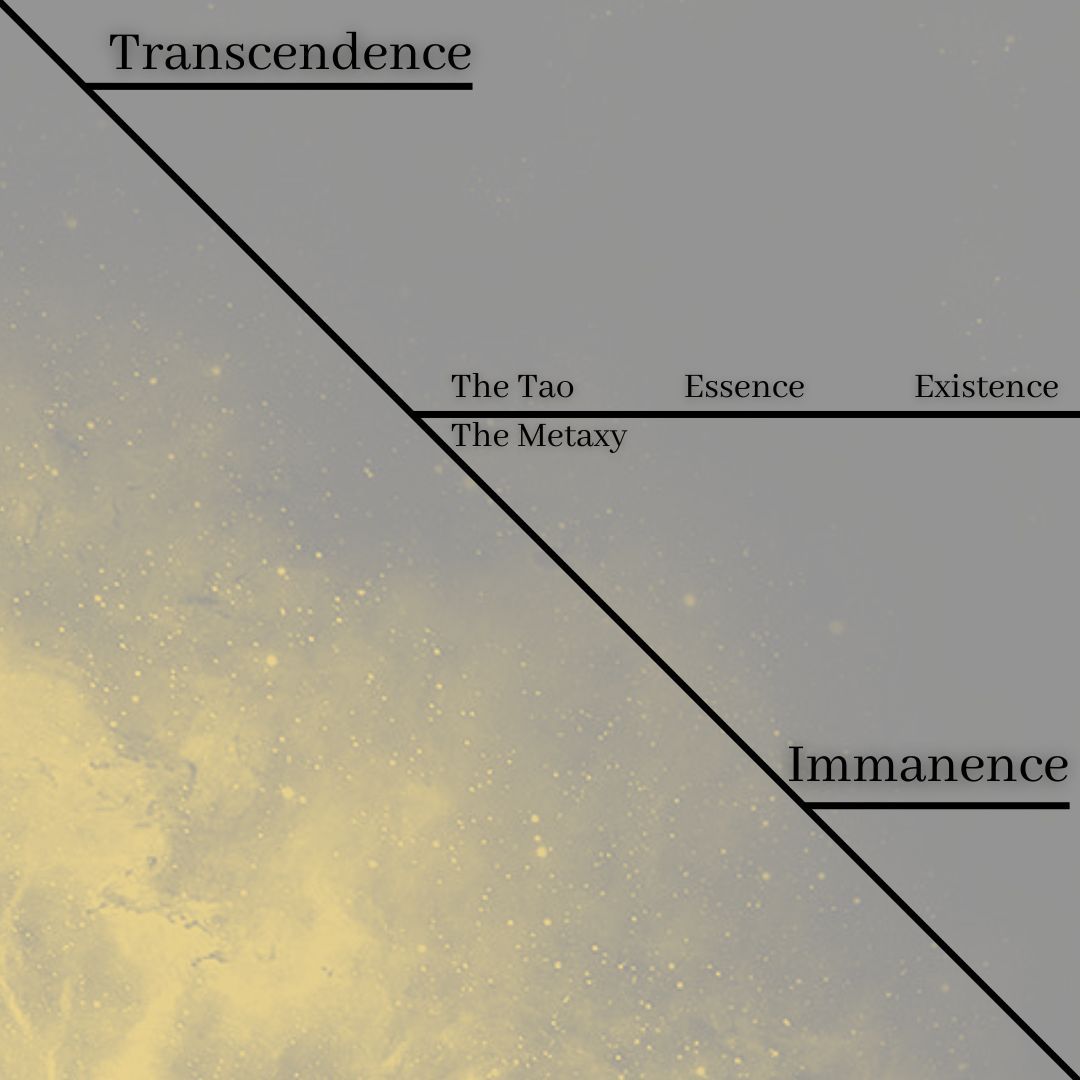Are You Engaged in the Act of Existence? Then You’re a Man of the Tao
Introducing "The Reality Spectrum"

My daughter runs.
She runs in the morning, she runs at night. Runs, runs, runs.
People around town see her and go, “Look at that girl! She’s a runner.”
But I know she’s more than that.
My daughter breathes. She breathes in the morning, she breathes at night. Breathes, breathes, breathes. She’s a breather.
And you know what else?
She exists. She exists in the morning, she exists at night. Exists, exists, exists. She’s an exister . . . a being.
It’s All Absurdly Axiomatic
It’s all common sense, right? Almost so obvious that it borders on stupidity?
“Scheske, we get it: Your daughter engages in the act of running, so we know she’s a runner. She engages in the act of breathing, so we know she’s a breather. She engages in the act of existing, so we know she’s a being. It’s axiomatic to the point of absurd common sense.”
Perhaps.
But just grant me this: There’s something different between “engaging in the act of running/breathing/existing” and “being a runner/breather/being.”
I don’t even want you to explain what the difference is. Just concede the point: they’re different somehow.
And then focus on the “being” part.
Let Me Hurt Your Brain a Little
Each person is engaged in the act of existence. Therefore, each person exists. We know a person exists by seeing her (and the traits that distinguish her from other things), so in that sense, her distinguishing traits are prior to her existence (we know the traits before we know the being), but even before the traits can be seen, she is engaged in the act of existence. If she weren’t, there would be nothing for the traits to latch onto.
Now let me give you a simple formula:
Act of existence-->essence-->being
I call it the “Reality Spectrum.” It’s the full spectrum, in three points of reference, of our reality. We are engaged in the act of existence, which allows essences (attributes, traits, characteristics, “accidents”) to attach, which then makes our being accessible to the rest of the world.
A lot of philosophers have rejected it. They reject the “act of existence” altogether, either saying that it’s synonymous with “being” and therefore isn’t even a thing, or saying that it’s axiomatic to the point of absurd common sense.
But they’re obviously wrong. We know my daughter is a runner because she engages in the act of running. They’re different things.
It’s Not Even Worth Talking About
Well, the axiomaticians aren’t really wrong. They have a point. It is axiomatic (one thing necessarily leading to the other).
In fact, the axiomaticians might be the most correct. The whole thing is so axiomatic, there’s nothing left to be said about the “act of existence.”
“Okay, Scheske. We know your daughter is a runner because she’s engaged in the act of running. Everything else about the condition—her personal best, her preferred running shoes, her form, how it makes her feel, how it affects her other life activities—all focus on the attributes of running or her. To explore her running, we don’t ever have to revisit the premise that ‘she’s engaged in the act of running.’ So drop it. We don’t give a s*** about the act of running.”
And they’d be right. The Running Reality Spectrum for purposes of everything we know (for purposes of observation, discussion, debate, data, experimentation, records, the Olympics, TV, a varsity letter, etc.) looks like this: Attributes of Running-->Runner.
No “Act of Running.” It’s there, yes, but it’s not even worth talking about, so it can be properly (efficiently) discarded from our mental view.
When it comes to the Act of Existence, we tend to do the same thing. The Reality Spectrum is just Attributes of Existing-->Being. Everything we can see, hear, talk about, and measure pertains to one of those two things. The Act of Existence is prior to all that, of course, but so what? It’s not worth talking about.
But I’d take the axiomaticians one step further:
It’s not that it’s not worth talking about.
It’s that we can’t talk about it.
Enter the Tao
The first line of Lao Tzu’s Tao Teh Ching tells us that “The Tao that can be put into words is not the real Tao.”
The Zen master, Wen-yu, when asked for the First Principle of Zen, echoed Lao Tzu: “If words could tell you, it would become the Second Principle.”
The Tao. The First Principle of Zen. There’s nothing to be said about them. In fact, if you try, you eliminate them. You can’t talk about them any more than you can catch your shadow. The mere attempt to catch it is a failure to appreciate what a shadow is. The same with the Tao and the First Principle of Zen: The mere attempt to talk about them (to catch them) is a failure to appreciate what they are.
The Tao. The First Principle of Zen. They are labels for the Act of Existence.
The Tao, the First Principle of Zen, and the Act of Existence can’t be defined because they are prior to the world of essence and being. Language defines subjects and objects. The Tao comes first, before language, before subject-object. The mere attempt to talk about it is a failure to appreciate what the Tao is.
But that doesn’t mean the Tao is irrelevant.
Far from it. It’s the most important thing, even if we can’t articulate how and must try to obtain glimpses of it in ways that don’t use the world of subject-object and language.
Other


